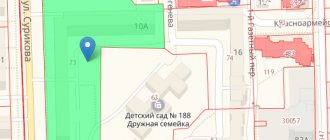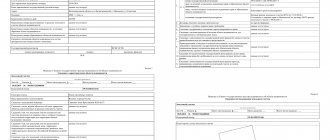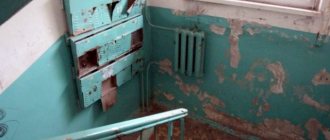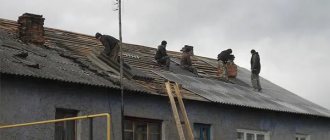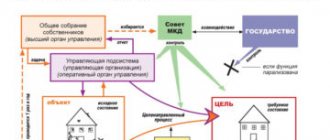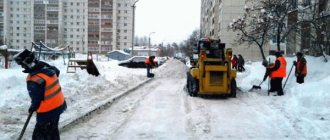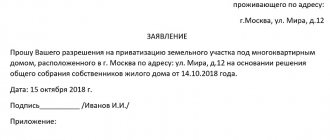Apartment buildings are complex engineering structures consisting of residential apartments, common areas and infrastructure that provides residents with utilities.
For the normal functioning of the house, it is necessary to carry out repairs and maintenance of premises and communications; the procedure for carrying out such work is regulated by the Government of the Russian Federation. Dear readers! To solve your specific problem, call the hotline or visit the website. It's free.
8 (800) 350-31-84
Current rules for the operation of housing stock
The operation of apartment buildings means the use of common and special premises, as well as equipment and communications located in such premises to ensure comfortable living for owners and tenants and provide them with utility resources - hot and cold water, electricity, etc.
The operating standards for residential buildings are regulated by the following documents:
- Resolution of the State Construction Committee No. 170;
- Government Decree No. 290.
Resolution No. 170 provides the procedure for organizing the maintenance and repair of common premises, as well as the rules for maintaining the adjacent plot of land. Resolution No. 290 contains a minimum list of work necessary to maintain a house in a condition suitable for comfortable and safe living.
The rules given in Decree No. 170 describe the following aspects of the operation of apartment buildings:
- the procedure for maintenance and ongoing repairs of communications and common areas;
- frequency and timing of work;
- features of house maintenance depending on the type of land on which the house is located and the composition of the soil in the local area;
- the procedure for registering applications from residents for repairs;
- methods for troubleshooting heating stoves;
- a list of mandatory routine repairs depending on the type of property being serviced.
The procedure for standard home maintenance involves conducting scheduled inspections at intervals determined by Resolution No. 170, regional legislation and the charter of the service organization (MC or HOA).
During scheduled inspections, immediate repairs of minor faults are carried out and a list of planned repairs that require preliminary preparation is compiled.
Section 6 of Decree No. 170 describes the rules for the operation and repair of buildings located in the areas:
- subsidence soils;
- saline soils;
- territories for mining blasting;
- seismically active areas;
- permafrost.
When operating buildings located in areas of subsidence soils, constant monitoring of the water supply system should be carried out to avoid leaks, especially in basements. It is also necessary to keep records of emergency situations and post-accident inspections of foundation fastenings.
In areas of saline soils, it is necessary to check the protection of metal fastenings of basements from corrosion by periodically renewing the paint layer. In areas with high seismic activity, it is important to conduct a timely engineering analysis of the consequences of tremors to assess the safety of further operation of a residential building.
If an apartment building is located in permafrost, during its operation it is necessary to monitor the temperature regime of the permafrost near the foundation , preventing it from being flooded by flood waters.
What documents are needed to put a house into operation?
The list of documents is strictly limited and cannot be expanded at the request of the party accepting the documents for consideration. The following documents are attached to the application for a permit to put the facility into operation (Part 3 of Article 55 of the Civil Code of the Russian Federation):
- Extract from the Unified State Register of Land Registers for the land plot;
- Urban planning plan of the land plot;
- Permission to build a house;
- A diagram showing the location of the constructed house, the location of engineering support networks within the boundaries of the land plot and the planning organization of the land plot signed by the person carrying out the construction (the person carrying out the construction and the developer or customer in the case of construction, reconstruction, major repairs on the basis of an agreement) ;
- Conclusion of the state construction supervision body (SCA);
- A copy of the results of engineering surveys and a copy of sections of the design documentation provided for by the Town Planning Code of the Russian Federation (clauses 2, 8 - 10 of part 12 of article 48, part 18 of article 5);
- Acceptance certificate for a capital construction project (in case of construction under a contract);
- A document confirming the compliance of the built house with the requirements of technical regulations and signed by the person carrying out the construction (the form is not established);
- Documents confirming the compliance of the constructed capital construction facility with technical conditions and signed by representatives of organizations operating engineering support networks (if any).
However, according to the Federal Law “On the implementation of the Town Planning Code of the Russian Federation” dated December 29, 2004 N 191-FZ (latest edition) clause 4 of Art. 8 - until March 1, 2021, it is not required to obtain a permit to put an individual housing construction project into operation, as well as to submit this permit to carry out technical accounting (inventory) of such a facility, including for the registration and issuance of a technical passport of such a facility.
That is, in order to put the house into operation before 03/01/2020, it is enough to submit only two documents to the MFC “My Documents”:
- Technical passport for the built house (order from BTI);
- Extract from the Unified State Register of Land Registers for the land plot.
Please note that Rosreestr sends extracts from the Unified State Register within 3 days (there may be delays). If you want to get information faster, I recommend ordering statements directly through the Rosreestr API - this way you will receive the document within a day. The cost is the same - 250 rubles, the official data is from the Unified State Register of Rosreestr and is confirmed by the registrar’s electronic digital signature (EDS).
Extract from the Unified State Register of Real Estate, which I recently ordered through the Rosreestr API
Frequency of work
The frequency of scheduled building inspections is given in Appendix No. 1 to Resolution No. 170 and is the following periods:
- inspection of furnaces and ventilation shafts - once a year;
- checking flue pipes from hot water supply heating columns - once a year;
- inspection of watering devices and drainage systems from the roofs of houses - once a year;
- inspection and repair of the heating system - 2 times a year;
- inspection of garbage chutes, as well as hot and cold water supply systems - as necessary.
The frequency of inspection and repair of thermal communications between buildings, as well as power supply networks for common premises and high-voltage electric stoves installed in apartments, is determined by the terms of the contract with contractors.
The repair and maintenance contract is concluded between management organizations or housing associations, on the one hand, and special engineering services, on the other. The frequency of inspection under the terms of the contract must comply with the technical regulations for building maintenance adopted in the region, taking into account the type of soil and climatic features of the territory.
In addition to scheduled inspections, the organization servicing the house must prepare the house for seasonal operation at least twice a year - in the spring preparations are made for snow melting and floods, in the fall the heating system is reactivated and tested.
The general meeting of HOA members has the right to establish in the charter the frequency of cleaning of common premises and local areas, as well as the frequency of inspection of elevators and garbage chutes.
If the house is equipped with gas stoves, then the housing association is obliged to enter into an agreement with the city gas service for a preventive inspection of the house’s gas equipment and individual indoor valves at least once a year.
Is it necessary to obtain the bank’s consent to open a building if the land plot is mortgaged?
Let's assume that the land plot is mortgaged and is pledged to the bank. Is it necessary to obtain consent from the bank for the construction and commissioning of a house built on this site?
In accordance with the Federal Law of July 16, 1998 N 102-FZ (as amended on July 13, 2020) “On mortgage (real estate pledge)” (as amended and additionally, entered into force on September 1, 2020) (Article 65 of the Law ) on a land plot pledged under a mortgage agreement, the mortgagor has the right, without the consent of the mortgagee, to erect buildings or structures in the prescribed manner, unless otherwise provided by the mortgage agreement. Unless otherwise provided by the mortgage agreement, the mortgage extends to these buildings and structures. If the construction by the mortgagor of a building or structure on a mortgaged land plot entails or may entail a deterioration of the security provided to the mortgagee by the mortgage of this plot, the mortgagee has the right, in accordance with paragraph 2 of Article 450 of the Civil Code of the Russian Federation, to demand a change in the mortgage agreement, including, if necessary, by extending the mortgage to the erected building or structure.
Thus, if the agreement contains a condition or provision on obtaining the bank’s consent, consent is required; if there are no conditions, consent is not required.
What are the consequences of self-construction?
From July 1, 2021, the Government of the Russian Federation has set deadlines for the liquidation of illegal buildings. Owners of unauthorized construction who fail to complete demolition on time are subject to a fine of up to 50 thousand rubles, as well as confiscation of the land plot. It is also proposed to make changes to the Civil Code of the Russian Federation that affect the interests of many citizens. According to these changes, it is proposed to include not only residential buildings, but also garages, bathhouses, garden buildings, stalls and pavilions as illegal buildings.
The package of new bills prohibits the use and disposal of illegal buildings, and unauthorized buildings will need to be demolished or reconstructed at one’s own expense. If the developer cannot be identified, then the costs of demolition or reconstruction are borne by the owner of the land plot.
Thus, an article may appear in the Civil Code allowing the confiscation of a land plot in the event of failure to comply with the decision to demolish or reconstruct a building within the prescribed period.
The deadlines for the demolition of unauthorized buildings are also established by law: the maximum period is 12 months, the minimum is 3 months, and for reconstruction - from 6 months to 3 years. Fines The Cabinet of Ministers proposes to amend the Administrative Code by adding an article that provides for a fine for individuals and individual entrepreneurs in the amount of 20 thousand to 50 thousand rubles for failure to comply with requirements for the reconstruction or demolition of an unauthorized building.
Decisions on the demolition of unauthorized buildings, according to the new laws, can be made by the court, and in certain cases - by local government bodies. At the same time, to eliminate abuses, it is proposed to prohibit municipalities from making decisions on the demolition of buildings erected without permission before the entry into force of the Town Planning Code of the Russian Federation (May 7, 1998 - ed.).
It is also prohibited to demolish buildings on unregistered land until the Land Code of the Russian Federation comes into force (October 25, 2001 - ed.). In such cases or if the building is registered in the Unified Register of Real Estate, decisions on the demolition of an unauthorized building will be made in court.
What to do after putting the house into operation
- The next stage of legalization of housing will be obtaining cadastral documents. To do this, you need to contact the BTI. Employees of the organization will conduct an additional inspection of the building and issue two passports - technical and cadastral.
- Register ownership of the constructed facility in Rosreestr (takes about 2 weeks). I talk about how to register a built house as a property here.
- After registering the property with Rosreestr, the owner becomes the official user. This means that he is obliged to make all utility payments in accordance with the official connection to the networks. According to Art. 153 of the Housing Code of the Russian Federation, the obligation to make payments for housing and communal services is assigned to persons who are owners of real estate or its tenants. This means that immediately after putting the residential premises into operation, it is necessary to notify all utility services, record meter readings and make regular payments.
- The appearance of another unit of real estate in the country means the emergence of a new taxation unit.
How to independently register a built house as your own
